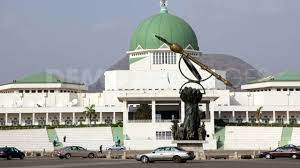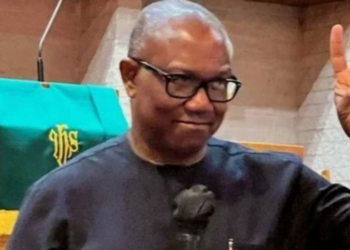With the removal of subsidy on petrol by President Bola Ahmed Tinubu during his inaugural speech on May 29, 2023, a lot of issues have been stirred up, including the allegation that members of the National Assembly were billed to take a good share of the planned interventions of the federal government designed to cushion the effects of hardship experienced by the citizens. JOSHUA EGBODO reviews the issues
A case of poor judgement?
There have been a lot in street discussions that the pronouncement declaring the total removal of subsidy on Premium Motor Spirit (PMS), also known as petrol was never part of the prepared inaugural speech of President Tinubu.
But it is considered not a crime in such communication, when one chooses to make some ad-lib on issues he felt to be important, but not captured as he may have wanted it. What is clear, however, remains the fact that such interventions are still undeniably his words, and should be squarely blamed if the judgement is considered wrong from takeoff.
In the opinion of many, the case here has remained to blame the President for that extemporaneous statement, which has boxed the economic system under his rule into an early and dangerous corner. Many have concluded that he rushed in, before understanding the real issues surrounding subsidy on petrol.
The aftermath
Immediately after the public pronouncement, as usually the case with the Nigerian system, profit racketeering began with petrol service stations in few hours hoarding the product already in their underground tanks. The Nigeria National Petroleum Company Limited (NNPCL) amidst the raging controversy, issued pump price templates for states across the country, a move Nigerians saw as confirmation of an orchestrated design.
Supplementary budget
The Tinubu led government, true to its promises that administration’s interventions were underway to cushion the effect, followed up with a supplementary budget to the National Assembly for approval. It was intended to make virement of funds to specific areas of interest by amending the 2023 Appropriation Act, signed into law by his predecessor, Muhammadu Buhari.
But the controversies
When the request for approval of some fund movements and additional expenditure in the 2023 fiscal year by President Tinubu came before the National Assembly, a number of provisions therein triggered controversies, with Nigerians raising alarm that the promised palliative measures may have been directed at members of the nation’s apex parliament. A case in view was that of a N70 billion allocation to the National Assembly.
Reps explain
On July 13, when the House of Representatives approved President Tinubu’s request for N500 billion for the palliative as requested, it took time to explain, debunking insinuations that the N70 billion naira listed for the National Assembly in the supplementary amendment Bill it passed was part of the N500 billion palliatives requested by President Bola Tinubu.
President Tinubu had in a letter read by Speaker Tajudeen Abbas asked for the immediate approval of an amendment to the 2023 supplementary Appropriation Act, to provide for the sum of over N500 billion as palliative to cushion the effect of the subsidy removal on petrol.
Speaking during a media briefing to clarify the issue, Deputy Speaker Benjamin Kalu who led other members of the leadership, explained that beside the palliatives, there other requests aimed at at addressing challenges in some other critical sectors, which shot up the total figure passed to N819 billion, stressing that the other interventions were outside the N500 billion naira which was exclusively set aside for palliatives.
The Deputy Speaker said the other components include provisions for last year’s flooding mitigation (N180 billion), recovery of destroyed farmlands (N19.2 billion) and for the National Judicial Service Commission (N35 billion), adding that the figure listed for the National Assembly was for infrastructure, making the total figure approved to be N819 billion.
The fresh twist by NLC
When all the public objections appeared to have been doused, the Nigeria Labour Congress (NLC) in about recently stirred up another controversy, alleging that each member of the National Assembly took N100 million as palliative fund from the Tinubu’s government. A statement credited to the National Assistant General Secretary of the Congress, Mr. Christopher Onyeka claimed that the executive arm gave federal lawmakers the sum as palliatives, as he faulted the Federal Government for reportedly sharing a bag of rice to a dozen citizens while giving N100 million palliative to each member of the National Assembly.
The NLC had earlier on September 1 handed down a 21-day ultimatum to the government over the delay in sharing of palliatives, noting that the government had failed to meet its demands, including wage awards, implementation of palliatives, tax exemptions and allowances to the public sector workers and a review of the minimum wage.
Reps fire back
With the fresh debate against the said largesse to lawmakers, the House of Representatives was again, forced to deny the allegation, as its spokesman, Hon. Akin Rotimi, described the claim baseless and devoid of any factual accuracy, adding that transparency and truth in public discourse were necessary for a functioning democracy.
He also expressed doubt if Onyeka was conveying the official position of the NLC on the claim, adding that it was however important to correct such misinformation. “We state categorically that Onyeka lied in his claim that National Assembly members were given N100 million as palliatives”, the lawmaker said in a statement made available to journalists.
According to him, at no time did members receive any money from the executive arm as palliatives, adding that the statement should be considered as malicious, irresponsible and in bad faith, adding that it was most unfortunate Onyeka would misrepresent facts in a bid to lend credence to otherwise valid demands of the NLC, while seeking to denigrate the National Assembly, and incite the public against the institution, and demanded an immediate retraction of this lie and a public apology from the NLC.
“The NLC as a critical stakeholder in the development of Nigeria has a voice and it risks delegitimising that voice if it is found to include fables in its legitimate agitations. We wish to remind the NLC and indeed all Nigerians that in less than 100 days in the tenure of the 10th Assembly, we have demonstrated our commitment to the welfare of Nigerian workers and all Nigerians.
“In addition to other measures, the House of Reps speedily carried out requisite legislative action on the executive arm of government’s request for approval of funds for palliatives for Nigerians”, he stated.
He said the House had consistently advocated for the executive to expedite the palliative measures to reach vulnerable Nigerians effectively and efficiently, adding that the House had also added its voices to the call for an immediate review of the minimum wage, while urging NLC to see the National Assembly as partners rather than adversaries.
The lawmaker insisted that the House of Representatives, remained committed to advancing the wellbeing of Nigerians, while empathising with them on account of the pains being experienced due to the impact of the removal of fuel subsidy.
Blaming the Akpabio’s gaffe
Many followers of the controversies surrounding the palliative to lawmakers have blamed it all on the inglorious gaffe by the Senate President, Godswill Akpabio, who on the date the Senate was to proceed on the ongoing recess, just after the confirmation of the screened ministers, told his colleagues on live television that “money has been sent to senators to enjoy the recess’.
He followed up with withdrawal of the statement when his colleagues angrily reacted to the gaffe, saying that “prayers have been to Senators’ email boxes” for the recess.
To many pundits, that alone created the suspicion, which many Nigerians have refused to let go, leaving the lawmakers with the burden of proof of innocence to the effect that they do not receive funds as palliative from the executive arm of the government.




